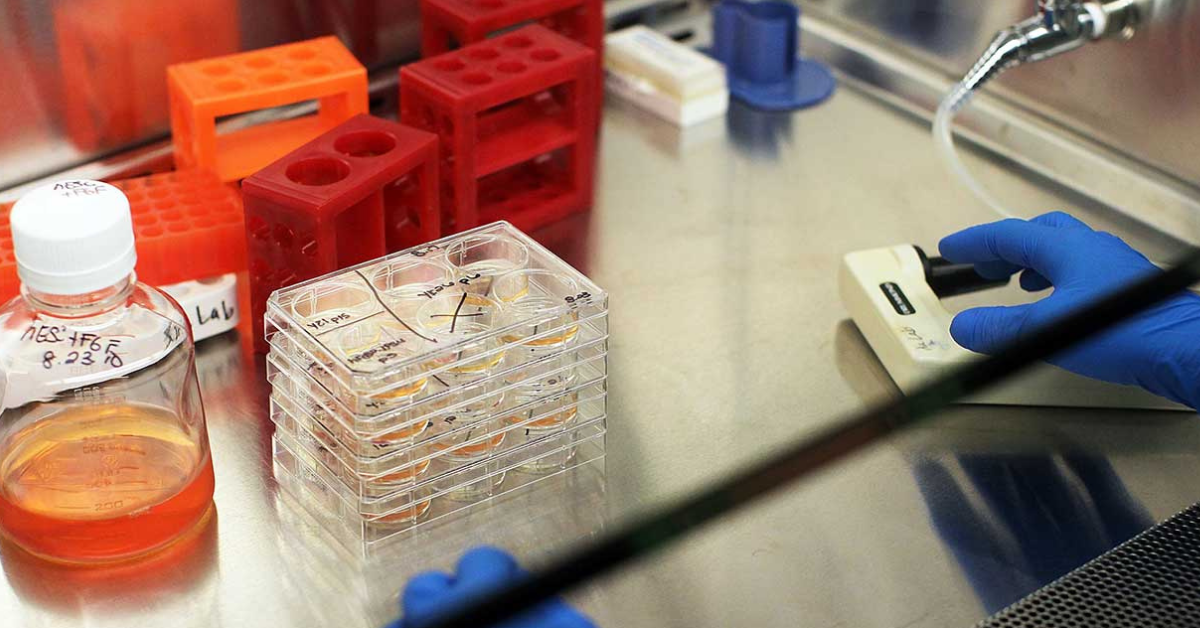Worldwide SWAY Survey - Sickle Cell Disease Deeply Impacting Patient Lives
More Programs and Publications Featuring Dr. Ify Osunkwo
In this program:
Dr. Ify Osunkwo, Director of the Sickle Cell Disease Enterprise at Levine Cancer Institute, shares insights on an international study spanning from the United States to the Middle East. Over 2100 patients from 16 countries were surveyed, producing some insightful data. Watch Dr. Osunkwo, leader of this study speak to how this new data might help ease the daily physical and emotional struggles SCD patients face.
Read Transcript
Question:
Dr. Osunkwo, what is the significance of the SWAY study and what do the results mean for patients facing sickle cell worldwide?
Dr. Ify Isunkwo:
So, Sickle Cell Disease is a global disease. We have about 100,000 people in this country -- in the US -- but there’s millions of people affected worldwide. When we look at what Sickle Cell Disease does to an individual, we really focus on the physical aspects and we haven’t paid a lot of attention to psychosocial and emotional aspects.
The SWAY study -- the Sickle Cell World Assessment Study -- is an international survey that asks patients how does Sickle Cell Disease affect you? How do you manage your Sickle Cell Disease? And we surveyed over 2100 individuals in 16 countries across the world and the results are pretty impressive.
One important thing that stood out is that they experience pain way more than we ever imagined. 91% of people with Sickle Cell Disease regardless of genotype had at least one acute pain episode in the year and that’s way more than we believed that they do and we always look at acute care as when they come to the hospital.
What we learned from this survey that about 25% of our patients do not come to the hospital when they have acute pain exacerbations, so we’re missing a big chunk of how Sickle Cell affects them in their daily life. We also learned from this survey that Sickle Cell Disease impacts their quality of life.
They can’t go to school, they can’t work a full-time job, they may have to cut down their hours, they get fired a lot, they experience distress about how can I maintain my quality of life with my sickle cell disease.
And so, this has led to a profound negative perception about they're not productive people, and you know you can’t – you expect them to do things that they can’t do -- but we don’t understand why, and I think the results will help us understand how to really target that part of quality of life that actually is what’s important to our patients.
They want their pain to get better, but they really want to feel better. They want to be able to go to school, go to work, play with their children, have sex -- you know, have a relationship -- clean the house, go to the grocery store, but many of them cannot do that.
We also found out that with this survey that the results are the same pretty much across different countries, so whether you’re the US, Canada, Nigeria, Ghana, India, the Middle East: patients are reporting the same things—you know, they hurt a lot and if affects their quality of life.
And knowing that I think we need to elevate the treatments for Sickle Cell Disease above what we’ve been doing right now which is treat their acute visible pain and maybe focusing on preventing this debilitating quality of life issues that they have.
Question:
Did the SWAY study reveal any anomalies or surprise learnings?
Dr. Ify Isunkwo:
So we have to go into the data a little bit more deeply, but what was I guess surprising to some, but maybe not so much to others was that Sickle Cell Disease affects everyone with Sickle Cell Disease whether you have SS genotype, SC genotype, S beta plus genotype – they all have a lot of pain and there’s no such thing as you get older as mid Sickle Cell Disease because no matter what your genotype is you are having pain that you experience outside of healthcare.
I think what is also surprising is that there’s a lot more pain than we realize and we need to kind of ask the patient how is Sickle Cell Disease affecting you when I don’t see you in my clinic, when I don’t see you in the hospital because we’re going to learn a lot about how profoundly devastating the disease is to their quality of life.
The information on Diverse Health Hub is provided for educational purposes only, and is in no way intended to diagnose, cure, or treat any medical or other condition. Always seek the expert advice of your healthcare team.





